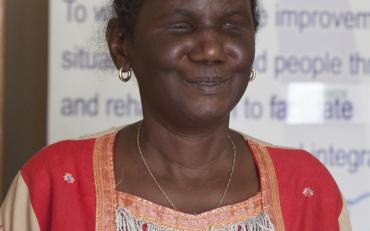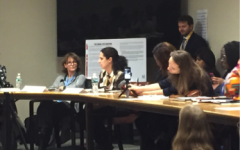A guest blog by Donatilla Kanimba, Executive Director of the Rwanda Union of the Blind, and the current Second Vice President of the World Blind Union.
Inequalities that harm women and girls with disabilities are so deeply rooted in our culture that I feel we should be talking about measures to unlearn some of the customs, beliefs and traditions that run so deep in our systems.
Part of this unlearning comes with the implementation of the UN Convention on the Rights of Persons with Disabilities (the CRPD), which outlines the steps state parties must take to protect our rights. Girls and women with disabilities are very often seen as a genderless category, but the CRPD recognizes that we are subject to multiple discrimination. States parties commit to take measures to empower us and to ensure our full and equal enjoyment of all human rights (article 6). It also calls on States Parties to recognize the right of persons with disabilities to education, with States Parties ensuring an inclusive education system at all levels and lifelong learning (article 24), as well as the right to participation in political and public life, ensuring that persons with disabilities can effectively and fully participate in political and public life on an equal basis with others (Article 29).
We need deliberate concerted efforts to educate girls and women with disabilities. And we need transformative changes in our education system to foster understanding, acceptance of and respect for difference and diversity, as well as to value it.
Lack of access to quality, equitable and inclusive education is not the only barrier. Others may not allow women with disabilities to vote, much less stand for elections; polling stations and ballot papers can be inaccessible, and for many with intellectual or psychosocial disabilities, there is an outright denial of the right to vote and stand for election.
The absence of women with disabilities in decision-making positions clearly means that something is not yet working. I encourage women with disabilities to be proactive and to participate in politics and public life as full citizens.
We, as women and girls with disabilities, need to be politically aware and to participate actively in the political systems of our respective countries. To do this, we need support and protection for women to ensure our right to education to enhance our political participation.
>> Learn more about the Commission on Status of Women (CSW) here.
>>Find the list of CSW 65 side events here.

